BMW X1 vs Peugeot 308 – Which model is better for everyday use?
Compare performance, boot capacity, efficiency and price at a glance.
Find out which car is the better choice for you – BMW X1 or Peugeot 308?
Costs and Efficiency:
Price and efficiency are key factors when choosing a car – and this is often where the real differences emerge.
Peugeot 308 has a evident advantage in terms of price – it starts at 29200 £, while the BMW X1 costs 38200 £. That’s a price difference of around 8991 £.
Fuel consumption also shows a difference: Peugeot 308 manages with 2.30 L and is therefore hardly perceptible more efficient than the BMW X1 with 2.50 L. The difference is about 0.20 L per 100 km.
As for range, the Peugeot 308 performs convincingly better – achieving up to 450 km, about 369 km more than the BMW X1.
Engine and Performance:
Power, torque and acceleration are the classic benchmarks for car enthusiasts – and here, some clear differences start to show.
When it comes to engine power, the BMW X1 has a significantly edge – offering 326 HP compared to 195 HP. That’s roughly 131 HP more horsepower.
In acceleration from 0 to 100 km/h, the BMW X1 is significantly quicker – completing the sprint in 5.40 s, while the Peugeot 308 takes 7.60 s. That’s about 2.20 s faster.
In terms of top speed, the BMW X1 performs barely noticeable better – reaching 250 km/h, while the Peugeot 308 tops out at 225 km/h. The difference is around 25 km/h.
There’s also a difference in torque: BMW X1 pulls noticeable stronger with 477 Nm compared to 300 Nm. That’s about 177 Nm difference.
Space and Everyday Use:
Beyond pure performance, interior space and usability matter most in daily life. This is where you see which car is more practical and versatile.
Both vehicles offer seating for 5 people.
In curb weight, Peugeot 308 is slight lighter – 1453 kg compared to 1575 kg. The difference is around 122 kg.
In terms of boot space, the BMW X1 offers evident more room – 540 L compared to 412 L. That’s a difference of about 128 L.
In maximum load capacity, the BMW X1 performs a bit better – up to 1600 L, which is about 277 L more than the Peugeot 308.
When it comes to payload, Peugeot 308 hardly perceptible takes the win – 503 kg compared to 500 kg. That’s a difference of about 3 kg.
Who comes out on top?
Overall, the BMW X1 shows itself to be dominates this comparison and secures the title of DriveDuel Champion.
It convinces with the more balanced overall package and proves to be the more versatile choice for everyday use.
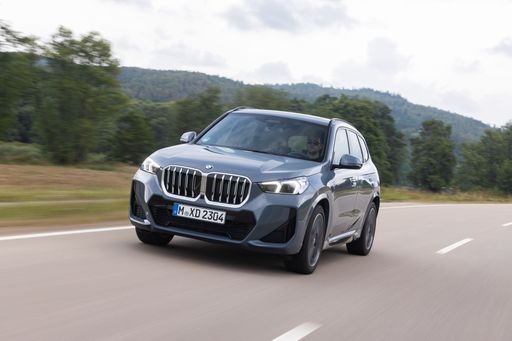 @ BMW Group Press
@ BMW Group Press
BMW X1
BMW X1
The BMW X1 brings a premium feel to compact crossover life, wrapping practical space and agile handling into a tidy, upscale package. It’s ideal for buyers who want BMW driving dynamics without the bulk, offering everyday comfort and a few clever tricks to keep the commute interesting.
details @ BMW Group Press
@ BMW Group Press
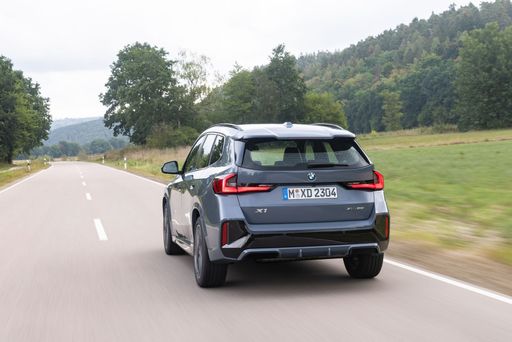 @ BMW Group Press
@ BMW Group Press
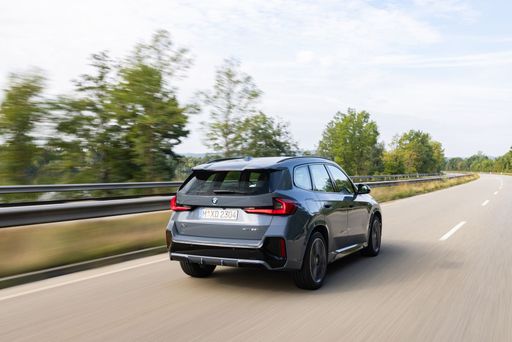 @ BMW Group Press
@ BMW Group Press
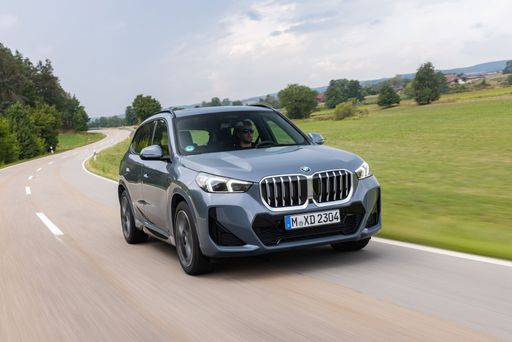 @ BMW Group Press
@ BMW Group Press
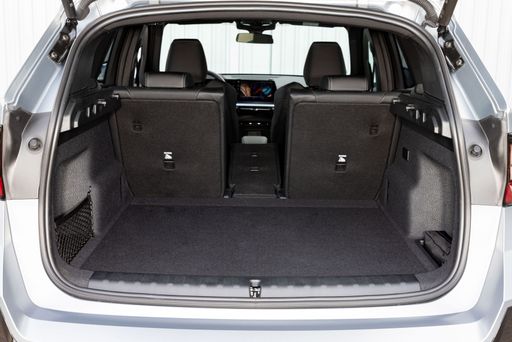 @ BMW Group Press
@ BMW Group Press
Peugeot 308
The Peugeot 308 brings a sleek, feline profile and an unexpectedly upscale cabin, with clever packaging and materials that feel a touch more premium than you might expect. It’s composed on the road, easy to live with for daily life, and a smart choice if you want a stylish hatch that still behaves when the road gets interesting.
details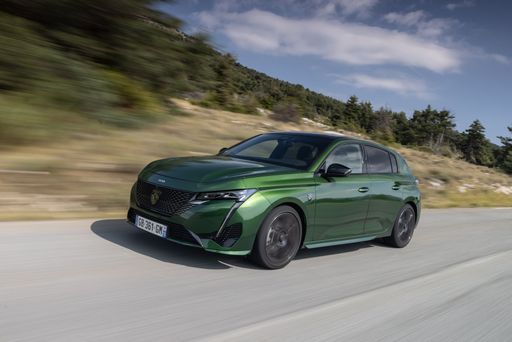 @ Peugeot / Stellantis Media
@ Peugeot / Stellantis Media
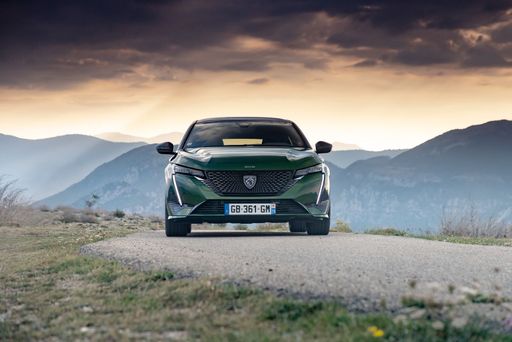 @ Peugeot / Stellantis Media
@ Peugeot / Stellantis Media
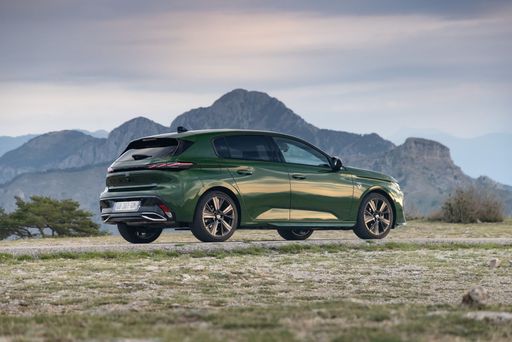 @ Peugeot / Stellantis Media
@ Peugeot / Stellantis Media
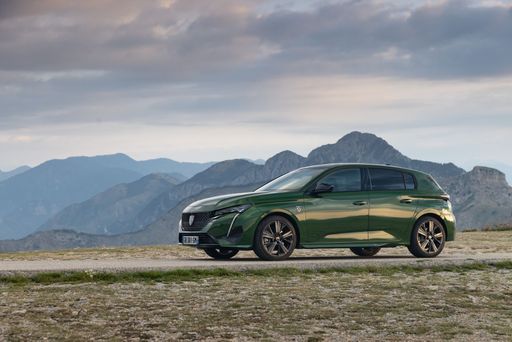 @ Peugeot / Stellantis Media
@ Peugeot / Stellantis Media
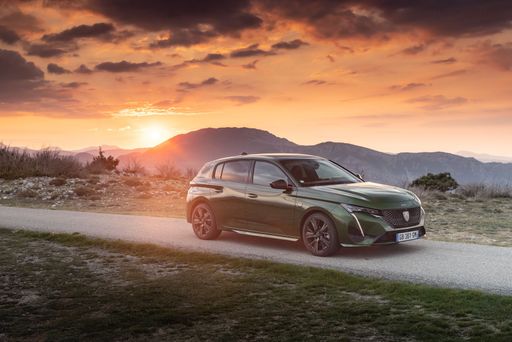 @ Peugeot / Stellantis Media
@ Peugeot / Stellantis Media
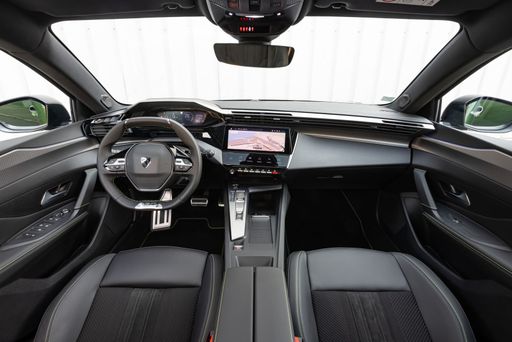 @ Peugeot / Stellantis Media
@ Peugeot / Stellantis Media
 @ BMW Group Press
@ BMW Group Press
|
 @ Peugeot / Stellantis Media
@ Peugeot / Stellantis Media
|
|
|
|
Costs and Consumption |
|
|---|---|
|
Price
38200 - 55500 £
|
Price
29200 - 42600 £
|
|
Consumption L/100km
2.5 - 7.7 L
|
Consumption L/100km
2.3 - 5 L
|
|
Consumption kWh/100km
-
|
Consumption kWh/100km
15.60 kWh
|
|
Electric Range
81 km
|
Electric Range
78 - 450 km
|
|
Battery Capacity
14.20 kWh
|
Battery Capacity
0.40 kWh
|
|
co2
57 - 175 g/km
|
co2
0 - 129 g/km
|
|
Fuel tank capacity
47 - 54 L
|
Fuel tank capacity
42 - 52 L
|
Dimensions and Body |
|
|---|---|
|
Body Type
SUV
|
Body Type
Hatchback
|
|
Seats
5
|
Seats
5
|
|
Doors
5
|
Doors
5
|
|
Curb weight
1575 - 1935 kg
|
Curb weight
1453 - 1749 kg
|
|
Trunk capacity
490 - 540 L
|
Trunk capacity
314 - 412 L
|
|
Length
4500 - 4505 mm
|
Length
4367 mm
|
|
Width
1845 mm
|
Width
1852 mm
|
|
Height
1622 - 1642 mm
|
Height
1438 mm
|
|
Max trunk capacity
1495 - 1600 L
|
Max trunk capacity
1258 - 1323 L
|
|
Payload
490 - 500 kg
|
Payload
430 - 503 kg
|
Engine and Performance |
|
|---|---|
|
Engine Type
Diesel MHEV, Petrol MHEV, Petrol, Diesel, Plugin Hybrid
|
Engine Type
Petrol MHEV, Diesel, Plugin Hybrid, Electric
|
|
Transmission
Automatic
|
Transmission
Automatic
|
|
Transmission Detail
Dual-Clutch Automatic
|
Transmission Detail
Dual-Clutch Automatic, Automatic Gearbox, Reduction Gearbox
|
|
Drive Type
Front-Wheel Drive, All-Wheel Drive
|
Drive Type
Front-Wheel Drive
|
|
Power HP
136 - 326 HP
|
Power HP
131 - 195 HP
|
|
Acceleration 0-100km/h
5.4 - 9.2 s
|
Acceleration 0-100km/h
7.6 - 10.6 s
|
|
Max Speed
190 - 250 km/h
|
Max Speed
170 - 225 km/h
|
|
Torque
230 - 477 Nm
|
Torque
230 - 300 Nm
|
|
Number of Cylinders
3 - 4
|
Number of Cylinders
3 - 4
|
|
Power kW
100 - 240 kW
|
Power kW
96 - 144 kW
|
|
Engine capacity
1499 - 1998 cm3
|
Engine capacity
1199 - 1598 cm3
|
General |
|
|---|---|
|
Model Year
2024 - 2025
|
Model Year
2025
|
|
CO2 Efficiency Class
D, E, F, B
|
CO2 Efficiency Class
C, D, B, A
|
|
Brand
BMW
|
Brand
Peugeot
|
Is the BMW X1 offered with different drivetrains?
The BMW X1 is offered with Front-Wheel Drive or All-Wheel Drive.
The prices and data displayed are estimates based on German list prices and may vary by country. This information is not legally binding.
